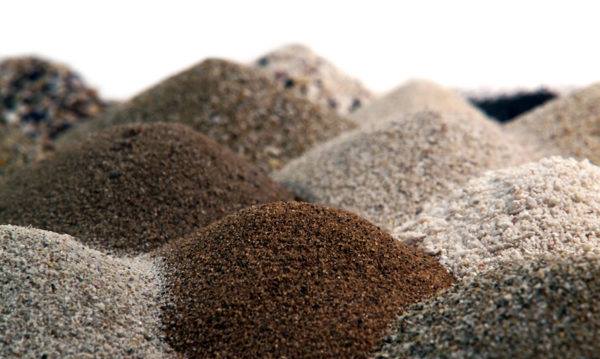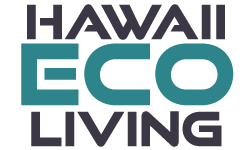
- This event has passed.
Plant Aloha (FREE Class) Organic Soil Amendments with Wade Bauer
February 22, 2018 @ 9:00 am - 12:30 pm

Hawaiian Sanctuary is proud to present, Plant Aloha 2018: FREE Permaculture Classes every Thursday morning from 9:00am until 12:30pm
Visit our website for more information, including class handouts:
http://hawaiiansanctuary.com/plantaloha
Thursday, February 22nd 2018 – 9:00am-12:30pm
6. Organic Soil Amendments & Fertilizers for Hawaii (building soil health part 3) Learn how to correct the most common local ph, mineral, and nutrient imbalances to enhance plant growth. Learn where to source local and organic amendments and how to get a soil test.
This class is part 6 of a 25 class series* entitled: How to Grow a Complete Diet using Tropical Permaculture Gardening with Wade Bauer of Malama Aina Permaculture: Edible Landscape Design, Education, & Nursery Hawaii-Permaculture-Institute.weebly.com
*See entire class series list below
The goal of this series is to teach Hawaii residents how to efficiently grow their own food at home to provide a fresh organic balanced diet. From field or backyard to table all the crops necessary will be covered including their: propagation, cultivation, harvest, preservation, and use. Permaculture tools and techniques focus on easy and practical ways to create food abundance at home! Every class there will be a blend of practical theory, photo rich slideshow, and hands on projects.
Bio: Wade Bauer has taught Permaculture in Hawaii for 10+ years. He has a degree in Environmental Biology and is the founder of Malama Aina Permaculture: Edible Landscape Design, Education & Nursery in Kapoho.
Contact:
Wade Bauer 248-245-9483
WadeBauer@gmail.com
Malama Aina Permaculture: Edible Landscape Design, Education & Nursery
http://hawaii-permaculture-institute.weebly.com/
Each class starts promptly with a lecture and Q&A before hands-on farm learning ~ Come prepared with notepad and writing utensil, closed toed shoes, sun hat, and gloves.
Plant Aloha is supported, in part, by County of Hawaii Council Members: Eileen O’hara and Jennifer Ruggles.
We are still looking for support to complete and enhance this amazing project. Please give what you can: http://hawaiiansanctuary.com/donate
Location:
Hawaiian Sanctuary – Laka Lounge
13-3194 Pahoa Kalapana Rd (Highway 130). Pahoa, HI 96778
Hawaii Island (Big Island)
Only about 1 Mile South of Pahoa Town.
Turn into the driveway at Mile Marker 12!
#hawaiiansanctuary #pahoa #hawaii #bigisland #puna #permaculture #sustainablefarming #sustainability #localfood #farmtotable #organicfarm #communityfarm #healthysoil
Thursday, January 4th 2018 – 9:00am-12:30pm
1. Introduction to Permaculture
Learn to work with nature, indigenous practices, & modern science to create sustainable human systems! Acquire the design tools of; observation, zones, sectors, site assessment, and more…
Thursday, January 11th 2018 – 9:00am-12:30pm
2. Growing a Complete Diet Primer
What does a “complete diet” of Hawaii grown foods look like? Discover the many benefits of re-localizing our diet and how to source even more homegrown and local-grown foods!
Thursday, January 18th 2018 – 9:00am-12:30pm
3. Guilds, Companion Planting & Polycultures
How to group plants together to support each others needs and fill available niches such as, overstory or understory, nitrogen fixers, etc. Learn how to obtain extra yields and promote synergy within your plantings.
Thursday, January 25th 2018 – 9:00am-12:30pm
4. Mulch & Nitrogen Fixers (building soil health part 1)
Learn how to turn “weed trees” & other plants into food for the plants you want to grow, using coppicing aka “chop & drop”. Discover nitrogen fixing pigeon pea, crotolaria, ice cream bean, gliricidia, and more…
Thursday, February 1st 2018 – 9:00am-12:30pm
5. Compost, Vermicomposting & Compost Teas (building soil health part 2)
Make the valuable resource of compost from kitchen and yard “waste.” How to build & manage a worm bin and how to use vermicompost to make compost tea to boost your plants’ health.
Thursday, February 22nd 2018 – 9:00am-12:30pm
6. Organic Soil Amendments & Fertilizers for Hawaii (building soil health part 3) Learn how to correct the most common local ph, mineral, and nutrient imbalances to enhance plant growth. Learn where to source local and organic amendments and how to get a soil test.
7. Home Orchard & Site Design
Design a diverse, productive and low maintenance home orchard. Laying out all the elements for an on or off grid homestead. Find out how a site can “design itself”!
8. Plant Propagation & the Home Nursery
Learn how to easily grow all kinds of food plants from seed, cuttings, division, grafting basics, air-layering and more. Learn which trees are “true to seed” & which need grafting to produce quality fruit.
9. Organic Pest & Disease Management
If you plant it, they will come. Gain non-toxic solutions to deal with the worst pests in East Hawaii. Focus will be on slugs, pigs, banana bunchy top virus, root knot, & more. (LFA not covered, as it will be in other teacher’s class)
10. Kitchen & Root Crop Gardens
Learn how to site and build many styles of garden beds, hugelkultur, raised bed, etc. Build kitchen gardens. Obtain and balance soil. Protect root crop gardens from pigs!
11. Perennial Greens & Perennial Vegetables
Learn all about perennial leaf crops such as edible hibiscus, Okinawa and Brazilian spinach, chayote, 7 year lima beans, and more…Grow all of your cooking greens and many of your vegetables the easy way!
12. Locally Adapted Annual Vegetables
Work with Nature; Start with plants that are already well adapted to our climate and save your own seed for future success! Pumpkin, amaranth, sweet pepper, eggplant, beans, greens, and more!
13. Staple Root Crops (carbs)
Learn everything you need to know to grow cassava, taro, sweet potato, uhi & cocoyam. Cassava is underutilized here and extremely drought resistant.
14. Planting Fruit Trees
Selecting planting sites. Prepping holes or mounds depending on soil type and terrain. Amending soil. Hardening off, transplanting, mulching, after planting care & fertilizing schedules.
15. Pruning Fruit Trees
Learn how to prune for increased fruit tree health and ease of harvest. How to bring overgrown fruit trees back into reach. How to prune storm damaged trees and treat wounds.
16. Bananas & Plantains (Staple Tree Crops, carbs, part 1)
Learn to grow and use this super productive food plant from yard to table, including mulching, thinning, disease prevention, and more. Find out how to cook green bananas!
17. Ulu/Breadfruit (Staple Tree Crops, carbs, part 2)
Find out how to propagate, harvest, prune, and cook this amazingly productive Pacific island staple. Ulu is the new potato!
18. Peach Palm, Breadnut, Jackfruit Staple Tree Crops (carb/protein mix)
Peach palm and breadnut are delicious and common staple crops in their homelands and perfectly suited to our environment. They deserve to be more widely grown here! Plus malabar chestnut.
19. Protein Crops (Legumes, Nuts, Seeds & Greens)
Come find out about high protein crops including leaf crops: moringa, chaya and katuk. Perennial lima bean, long bean, cowpea, pigeon pea, pumpkin seeds and more!
20. Avocado, Mac Nut & Pili Nut (Oil Crops part 1)
Avocados are an easy way to get most of the fat we need in our diets in a delicious buttery fruit! Mac nut of course and the rare and delectable pili nut too!
21. Coconut (Oil Crops part 2)
Come learn all about this amazing multipurpose “tree of life” including how to make coconut milk, and how to use the nut in various stages of ripeness.
22. Key Sweet Tropical Fruits
This class will focus on some of the easiest to grow sweet fruit with long bearing seasons. Papaya, bananas, lilikoi, citrus, pineapple, guava and many more!
23. Perennial Spices
Learn how to grow and use ginger, turmeric, black pepper, vanilla, cinnamon, nutmeg, allspice, cardamom and more! Add flavor and medicinal value to your diet!
24. Perennial Culinary Herbs
Many annual herbs need frequent re-planting, perennial herbs with the same flavors can grow for many years with little care! Perennial basil, Cuban oregano, Culantro (perennial cilantro) and more…
25. Cooking With Locally Grown Food
How to adopt a local diet. Figuring out how to use new food plants can be more challenging than growing the food! Many of your favorite dishes can be made using local ingredients. Bring your favorite local grown food recipes to share!
